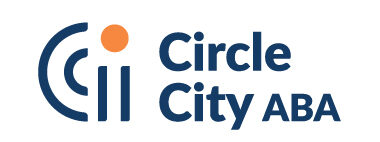Autism is a complex disorder that affects an individual’s ability to communicate and interact with others. Individuals with autism often rely heavily on nonverbal communication, such as facial expressions and body language, to express their thoughts and feelings. Through Applied Behavioral Analysis (ABA) therapy, many nonverbal individuals can learn to understand and use nonverbal communication to better engage with their environment. Let’s take a closer look at the power of nonverbal communication for those with autism.
The Benefits of Nonverbal Communication
Nonverbal communication has unique benefits for people with autism, especially those who are unable to speak or have difficulty speaking. Nonverbal communication can be used by individuals with autism to reduce frustration, build relationships, and increase independence. It allows them an avenue of expression that they may not otherwise have access to. This type of communication also helps therapists more effectively assess behaviors and develop effective treatments for people on the spectrum.
For example, facial expressions are one way in which individuals on the spectrum can use nonverbal communication to interact with others. Facial expressions allow them to send messages without speaking or using words. They can show emotions such as joy or anger even if they don’t have the vocabulary or ability to explain it through speech. Alongside this, body language is also essential in understanding how people on the spectrum feel about certain situations or events in their lives; if someone appears stiff or rigid when engaging with another person, it might indicate distress or anxiety about being engaged in that interaction; if someone is relaxed, then it might indicate comfortability within that situation or person – these cues help us better understand what is happening inside the mind of an individual with autism who cannot verbalize their thoughts and feelings directly.
ABA Therapy and Nonverbal Communication
With ABA therapy from Circle City ABA, individuals who are nonverbal can learn important skills related to nonverbal communication, such as recognizing facial expressions, understanding physical gestures, and developing strategies for responding appropriately in social settings. ABA therapists provide support by breaking down tasks into smaller steps so they can be easily mastered by those receiving treatment. This type of therapy also helps individuals become aware of their own behaviors so they can modify them accordingly when needed. With practice over time and guidance from a skilled ABA therapist, many individuals on the spectrum will eventually be able to communicate effectively using nonverbal methods without needing verbal assistance from another person.
The power of nonverbal communication should not be underestimated when it comes to helping individuals living with autism navigate through life’s complexities – it provides them an alternate form of expression that may reduce feelings of frustration and isolation while simultaneously helping build relationships within various environments, enabling independence along the way! ABA therapy has proven highly successful in teaching necessary skills related to effective nonverbal communication, allowing those living on the spectrum greater opportunities than ever before! Despite any challenges faced due to having autism – embracing its potential has never been easier! Start your journey with Circle City ABA today!



